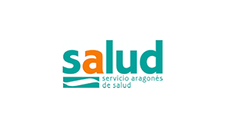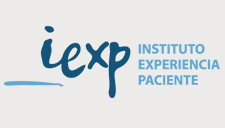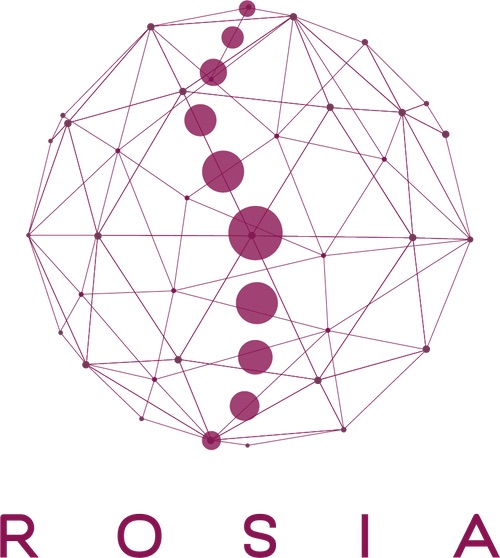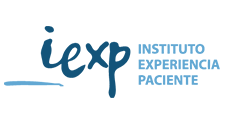THE CONSORTIUM AND PARTNERSHIP

Main Coordinator
IACS is the main coordinator of the project.
IACS (Instituto Aragonés de Ciencias de la Salud) was created in 2002 by the Aragon Health Act as an independent public entity under the umbrella of the Regional Health Department. The Institute organises its activity in two main areas: Knowledge Transfer and Research&Innovation.
Learn More
The IACS mission is to promote research, innovation and knowledge brokering in biomedicine and health sciences for the Aragon Health System. Regarding Knowledge Transference, we aim to improve the quality, safety and sustainability of the Health Care System and support the decision‐making process by providing HTA and evidence based products.
IACS has a department of Evidence Based Decision Making (EBDM) that holds its responsibility as HTA agency for the Regional Government as well as Aragon node of the Spanish Network of HTA Agencies. In addition, the Institute holds the secretary of the national clearinghouse of clinical practice guidelines (GuiaSalud), coordinating the development, dissemination and adoption of evidence based products for the Spanish National Health System.
Regarding Research&Innovation responsibilities, IACS supports stable research and innovation groups in the areas of clinical and translational medical research, biomedicine, public health, health systems and policy research. Organizational change and innovation (living labs, ideas exchange platform, public procurement of innovation, patent office) are coordinated from the Innovation Unit. As part of its support to biomedical research, we provide support for all grant application processes through the Project Office and specialized scientific services through our 10 Research Core Facilities. Moreover, IACS is the regional authority for authorization and monitoring (private and public) of randomized control clinical trials as well as post authorization observational studies for drugs and devices.
The IACS is located at the Aragon Biomedical Research Centre (CIBA), a joint initiative of the Regional Health System through IACS and the University of Zaragoza, for the development of a Centre of Excellence for Biomedical Research. The main objective is to ensure regional research and innovation competence and high quality translational Biomedical Research by coordinating and consolidating multidisciplinary research groups, optimising access to research resources, excellent performance of core services, and stimulate cooperation between basic and clinical researchers.

Procurer
SALUD is a procurer and part of the buyer’s group.
Servicio Aragonés de Salud (SALUD) is the public health provider for Aragón, having the responsibilities of overall management and coordination of the existing healthcare resources in the territory. SALUD is a procurer and part of the buyer’s group.
Learn More
SALUD provideS Primary care, Secondary care, mental care and geriatric care management, including homecare, and to the promotion and protection of individual and public health.
SALUD’s mission is to provide an integral healthcare attention, to ensure the services accessibility, to promote healthy lifestyles, the prevention and protection and to maintain patients’ autonomy and their social inclusion.
SALUD has a network composed of 12 General Hospitals, 110 Primary Health Centres and 5 Geriatric hospitals. It has introduced innovation on the professionals’ regular practice through the integration of telemedicine solutions thanks to the collaboration on several strategic projects.
Aragón is one of the regions in Spain with a highest rate of elderly people. The public authorities are very much concerned with the demographic change, especially with the ageing of the population and they are developing several initiatives to deal with its consequences.
SALUD has just been awarded as a four stars’ reference site from the EIP on AHA, recognizing its commitment to invest in innovation for active and healthy ageing, and supporting the transfer and scaling up of this innovation across

Procurer
NRH is a procurer and part of the buyers group within the partnership.
The NRH National Rehabilitation University Hospital is the only hospital in Ireland providing comprehensive, specialist neuro‐rehabilitation to patients following acquired brain injury, spinal cord injury or amputation.
Learn More
Now a publicly funded hospital, it was founded in 1961 by the Sisters of Mercy to provide treatment for tuberculosis. Over the years the NRH has sought to continuously evolve to best meet the needs of patients and become a centre for the education of healthcare professionals. It has become the primary site and teaching hospital for the education and training of undergraduate and graduate medical, nursing and allied health students in the principles and practices of interdisciplinary rehabilitation. As the national provider of rehabilitation in Ireland, NRH is committed to research and has recently established an Academic Department to further enhance participation in a wide range of national and international research studies. Research activity at NRH has resulted in numerous articles in peer reviewed journals, conference presentations and awards.
The NRH has 485 staff (FTE) with an annual turnover is circa €41 million and is accredited by the Commission on Accreditation of Rehabilitation Facilities (CARF).

Procurer
CHUC is a procurer partner and part of the buyers group.
The Centro Hospitalar e Universitário de Coimbra, EPE (CHUC) is the most prominent Portuguese hospital having comprehensive research, teaching, and patient‐centered care approach.
Learn More
CHUC‘s mission is to deliver high‐quality clinical care in a context of pre and postgraduate training with a strong focus on research, scientific knowledge, and innovation. The hospital offers comprehensive care across all the leading medical and surgical specialties.
CHUC´s excellence centers ensure high standard healthcare services (since 1991, more than 1,100 liver transplants). It is the medical institution in Portugal with more accredited reference centers, belonging to 10 European Reference Networks. Being an associate partner of InnoSTARS, EIT Health KIC we are developing partnerships with several biotech and IT companies implementing the concept of an innovation pioneer hospital. CHUC also belongs to the collaborative network M8 Alliance of Academic Health Centers, Universities and National Academies that is known for their educational and research excellence.
Currently, the elderly representrepresents one of the most significant age groups with hospital admission rates.
In CHUC, 70% of medical hospitalisations and 73% of inpatient days belong to patients over 65 years of age. However, data on the hospitalization of these individuals have shown negative health outcomes, namely functional and cognitive decline and high risk of adverse events. Sousa‐Pinto et al. (2013) show that 5.3% of patients over 65 are readmitted to hospital in less than 30 days, showing that the discontinuity of care between the hospital and home has a more pronounced effect on the elderly population.
CHUC developed 4 projects funded by the H2020: ZIKAction, GLORIA, NANOSTEM and MASSTRPLAN. In 2019 initialized the VEMoS project.

Supporting Partner
VALDE will act as procurement coordinator.
VALDE is a consulting company based in Spain integrated by a network of senior collaborators with specialized profiles in innovation procurement (PPI and PCP) at European and National level.
Learn More
VALDE has been developing its knowledge since 2012 in the field of ICT for Active and Healthy Aging.
VALDE has proven experience in European Projects and project management, and methodologies for co‐creation. Specially acting as a procurement coordinator in health-related european projects.
VALDE integrates the work of a network of consultants according to the needs of each project. Business development, users involvement, ethical aspects, strategic view, supportive ICT, dissemination activities, consortia building are critical. Facing societal challenges implies to deal with a very complex context and it is necessary to keep an holistic vision over many interconnected ingredients to always move a step further.

Supporting Partner
IPN will lead the co‐creation and co‐design with end‐users.
Instituto Pedro Nunes (IPN) is a non‐profit private organization, created in 1991 from an initiative of the University of Coimbra, which aims to contribute to the transformation of the business environment and organizations based on innovation, quality, rigor and entrepreneurship.
Learn More
IPN promotes integr changes built on a solid university/enterprise relationship and operating in three fronts that reinforce and complement each other: Research and technological development, consultancy and specialized services; Business and idea incubation; Highly specialized training and dissemination of science and technology.
IPN is co‐founder of the Ageing@Coimbra reference site of the EIP on AHA, and is associated partner of EIT Health. Additionally, IPN will be involved through the Laboratory for Automation and Systems (IPNlas). IPNlas undertakes RTD and technology transfer activities in the areas of expertise related to Embedded Artificial Intelligence (EAI); Collaborative Robotics; Internet of Bodies (IoB) and Medical Device Validation, Evaluation and Certification ‐ increasingly focusing on cutting‐edge technologies (CET) as a differentiating factor in the provision of specialized services. These activities benefit with the collaboration of researchers from the Electrical and Computer Engineering Department (DEEC) at the University of Coimbra and the Institute for Systems and Robotics (ISR).
IPNlas has been responsible for several initiatives in Portugal and the European Union related to ICT for Health and has participated in projects related to the design of systems, architecture and application development in the areas of Telemedicine, Hospital@Home, Home Care and Care Home, involving for example self‐monitoring devices, devices connected to the body, embedded devices, robotics, multimodal user interfaces ensuring privacy and security issues.

Supporting Partner
IFIC will lead the design of the telerehabilitation model.
IFIC is a not‐for‐profit network incorporated as a Stichting in the Netherlands. IFIC’s mission is to cross organisational and professional boundaries in order to bring people to together to advance the science, knowledge and adoption of integrated care in policy and practice.
Learn More
IFIC seeks to achieve this through the development and exchange of ideas among academics, researchers, managers, care practitioners, policymakers and people who use services, alongside their carers and families throughout the world. A key focus of IFIC is to act as a research and knowledge exchange hub in partnership with its members and academic centres internationally as well as through its involvement in EU‐funded projects and commissions for example, from the World Bank and World Health Organisation. Most recently, IFIC has provided technical support and capacity building to countries, regions and specific integrated care programmes through its Integrated Care Solutions initiative.

Supporting Partner
TDG will be responsible of the Evaluation Framework.
The Decision Group is a consultancy firm pioneering in Value‐Based Healthcare and its methodology and is implementing and educating VBHC in the Netherlands since 2006
Learn More
Prof. Dr. Fred van Eenennaam and his team have bundled the existing information to write a methodology based on the principles of Value‐Based Health Care by Harvard Professors Porter, Teisberg and Kaplan, and have had a lot of feedback from international colleagues. The methodology is based on starting the dialogue with medical professionals, care providers and executives on Patient Value. With practical tools, workshops and pressure‐cooker sessions, a hands‐on approach is provided to ‘change’ the view of the organization and its employees.

Supporting Partner
IEXP will engage patients in the solution co‐creation.
IEXP is the first organization specifically dedicated to patient experience in Spain and one of Europe’s reference organizations.
Learn More
All IEXP professionals come from the health or pharmaceutical field. Our two main goals: improve patient experience in terms of their physical, psychological, emotional, social and spiritual well‐being. Generate value through participatory and patient‐centered health strategies where patients and healthcare professionals intervene. Regarding the design of patient centered healthcare technology, the technological failure rate in healthcare is situated between 70% and 90%. In order to ensure market acceptance and increase success probabilities it is advisable to know what the patient experience regarding the pathology or situation the technology aims to improve. It is key to use co‐creation and co‐design methodologies and finally ensure that the technology produces changes in patients’ real life by using PROMs and PREMs.
Partnership with the La Princesa Hospital Madrid (one of Spain’s top 10 public hospitals) in order to operate and develop Patient Experience Lab, a living lab for the development of medical technologies.

Supporting Partner
PPCN is responsible of the ICT functional specification.
PPCN is a health and care tech consultancy company based in Copenhagen and Bangkok, that help Scale‐ups develop their markets of new business development.
Learn More
Have vast industry and user experience in the healthy ageing tech market and key person behind have been a major actor on an european scale to promote the agenda of integrated care and active and healthy ageing through standardisation and policy initiatives, and by managing projects since 2007 in the field. Currently PPCN is running market adoption projects of AI based ageing tech, telehealth, HIS systems and advanced medical device remote patient monitoring for SME’s primarily in EU and outside (Israel). PPCN key person is also involved in non‐profit pro‐bono activites to work for organisations to give the health data back to its rightful owner, the citizen. PPCN role will be to transfer knowledge to the partners assist the procurring partners with the procurring process and evaluate vendors and technology leveraging on it’s experience to deploy integrated care solutions for industry.

Pilote Partner
The Municipality of Penela will be involved in supporting the piloting activities.
The Municipality of Penela is a small territory of about 135 km2, where the area of forest occupies most of the territory, located in the Central Region of Portugal within the subregion Pinhal Interior Norte.
Learn More
The Municipality of Penela has adopted a development strategy geared to the development and economic empowerment of the county emerged by the establishment of innovation, competitiveness and entrepreneurship in the territory, making it a benchmark for regional dimension or even supra‐regional. This strategic investment intended to stimulate the attraction of structural investment for the county and the region to allow the capitalization of resources and the establishment of people within a rural territory.
In April 2010 the Municipality of Penela joined the European Network of Living Labs (ENoLL) through the project Smart Rural Living Lab (SRLL) linking the full circle in what regards to the Innovation, Entrepreneurship and Competitiveness strategy grounded in the Municipality of Penela public policy of territorial development, as regards, in particular, the involvement of various partners (from scientific and technological system, companies, associations and governance) that enhance new knowledge, attitudes and sharing experiences.

Pilote Partner
The Municipality of Penela will be involved in supporting the piloting activities.
The Municipality of Soure is a territory of about 260 km2, located in the Central Region of Portugal within the subregion Região de Coimbra.
Learn More
Regarding to the urban region, Soure is in between the cities of Coimbra, Pombal and Figueira da Foz that forms a small conurbation, establishing strong regional and natural ties with a wide range of services and activities. At the subregional level, Soure belongs to “Terras de Sicó ‐ Local Development Association (integrated with the Municipality of Pombal, Penela, Alvaiázere, Ansião and Condeixa‐a‐Nova) where resists a greater tradition of cooperation.
With near 20.000 inhabitants, Soure is the center for almost 200 small agglomerates that forms a large puzzle of connections, infrastructural shared facilities and equipments serving a mainly rural community.
From 2013 the Municipality of Soure has adopted a development strategy based on the diversity of activities and services specially linked to the place based resources and on his privileged location marked on a global positioning: Soure, in your own center.
How will ROSIA make a difference?
ROSIA will design, validate and assess a state-of-the-art model to address a common need: self-management of telerehabilitation, supported by community integrated care.
To do so:
– Will generate evidence on results, guidelines and invitation to participate in a PCP.
– Will unlock the market to existing disruptive SMEs.
– Will pull from lab existing research solutions.







